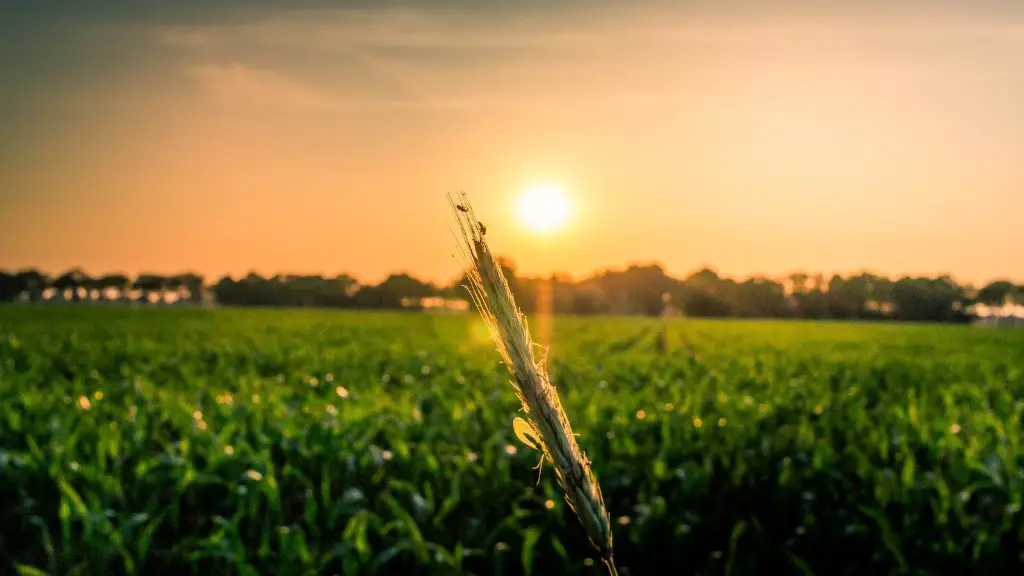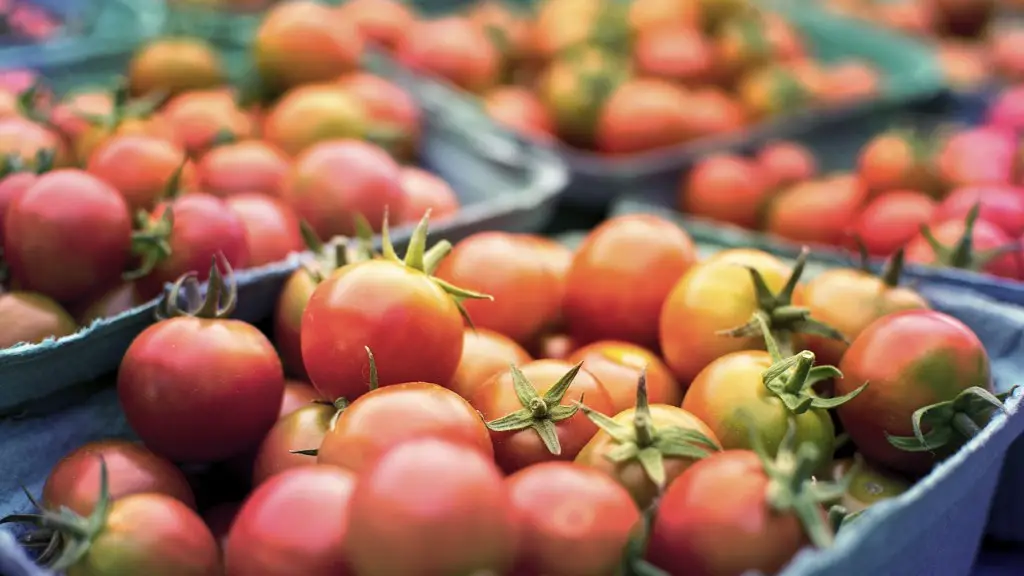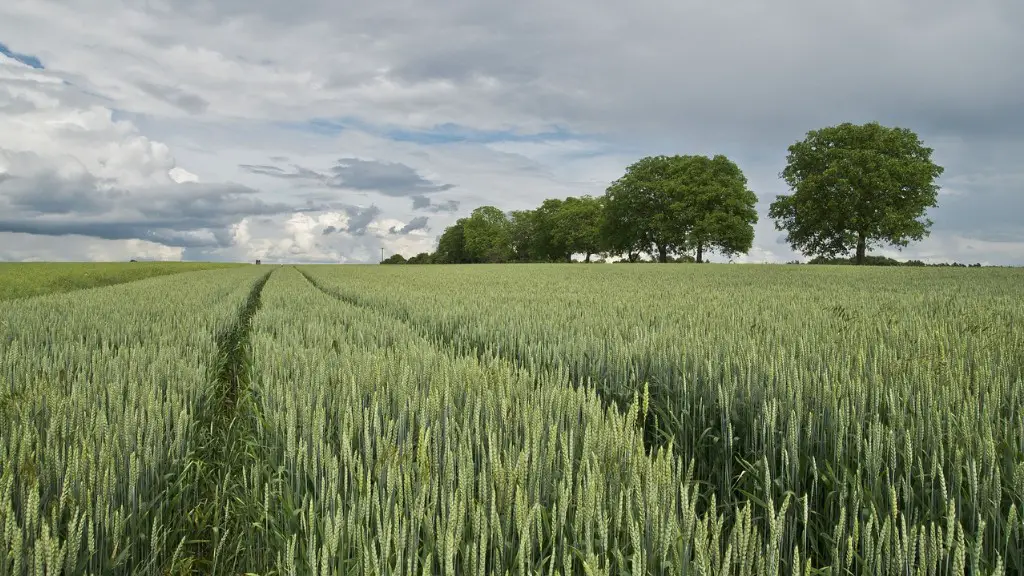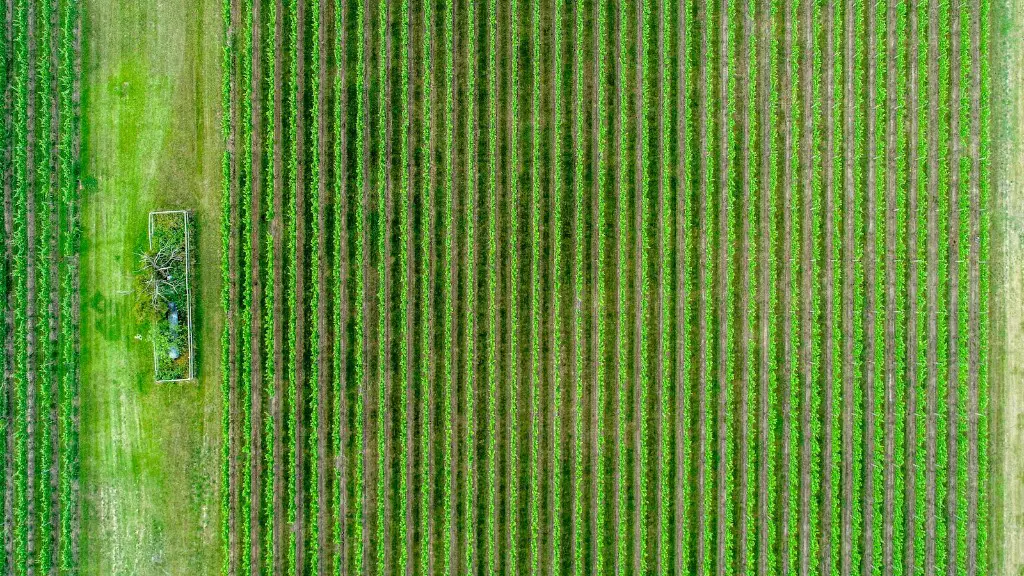The US Department of Agriculture (USDA) is an integral part of the US government, providing support to farmers, ranchers, and US consumers. The Department of Agriculture provides resources to protect and sustain the nation’s agricultural industry, including research and policy implementation. Along with administering food and nutrition assistance, the Department of Agriculture promotes economic growth and development by utilizing sustainable practices, such as renewable energy and conservation initiatives. The USDA’s mission is to “provide leadership on food, agriculture, natural resources, and related issues” to ensure safety, security, and sustenance for everyone living in the US.
The USDA is divided up into several mission areas, including the: Agricultural Research Service, Animal & Plant Health Inspection Service, Food Safety & Inspection Service, Forest Service, National Institute of Food & Agriculture, Natural Resources Conservation Service, Risk Management Agency, Rural Development, and the Farm Service Agency. Each of these mission areas are tasked with fulfilling the USDA’s mission of providing leadership on food, agriculture, natural resources and related issues.
The Department of Agriculture works to enhance the economic security and health of US citizens by ensuring an abundant, nutritious, safe, and secure food supply. To do this, the USDA provides resources for producers, food-service operators, rural businesses, and consumers. These resources include technical assistance, grants, financial aid, and educational opportunities in order to help the US food industry stay competitive.
In order to improve the health of US citizens and promote youth physical activity, the USDA has implemented the ‘MyPlate’ program. MyPlate provides Americans with a simple guide to creating healthy meals. It encourages citizens to fill half their plate with fruits and vegetables, and to make half of their grains whole grains. The program also promotes a balanced diet, low-fat and fat-free dairy products, lean proteins, and healthy fats like fish, nuts, and avocados.
Moreover, the Department of Agriculture provides financial assistance for farmers through its Emergency Assistance for Livestock, Honey Bees, and Farm-Raised Fish Program. This program helps farmers offset losses due to disease, severe weather, and other conditions. The USDA also administers the Supplemental Nutrition Assistance Program (SNAP) and other nutrition assistance initiatives to help ensure that vulnerable populations have access to healthy food. Finally, the USDA works to ensure agricultural producers have access to markets and financing through a variety of initiatives, such as rural development grants and assistance.
Agricultural Research and Policy Implementation
The Department of Agriculture supports farmers and ranchers through a variety of research and policy initiatives. One of the key programs of the USDA is the Agricultural Research Service (ARS). The ARS is the Department’s principal research agency and develops basic and applied scientific knowledge related to food production, nutrition, and the environment. The Department of Agriculture also works in partnership with universities and the private sector to research issues related to agriculture, health, and nutrition.
In addition, the USDA develops agricultural policy and implements it within the US. The USDA develops and advances policies that benefit US agriculture farmers; including market promotion, nutrition assistance, trade liberalization and securing loans. The Department also works to ensure US agricultural products are safe and secure. This includes regulating and inspecting the safety, quality, and packaging of food products and drugs. Finally, the Department assesses the health of livestock and plants and ensures the introduction of genetically modified organisms is safe for humans, animals, and the environment.
Conservation and Renewable Energy Sources
The Department of Agriculture promotes sustainable practices within the US through conservation and renewable energy initiatives. The USDA’s Natural Resources Conservation Service (NRCS) helps private landowners develop and improve their land through soil and water conservation, forest health, and other practices. The NRCS also provides technical and financial assistance to farmers, ranchers and other agricultural producers to conserve and protect the nation’s natural resources and habitats.
The Department also works to expand renewable energy sources through research, policy, and financial and technical assistance. The USDA provides incentives for farmers and rural businesses to install renewable energy systems, such as wind and solar farms. The Department has also implemented energy efficiency measures within its own operations, such as making its fleet of vehicles more energy efficient. Additionally, the Balanced Budget Act of 1997 authorized the USDA to provide rural businesses with grants and loans for the development of energy efficient projects.
Food Safety and Nutrition Assistance Programs
The USDA plays an important role in providing food assistance to underserved areas of the US. The Department of Agriculture provides resources to protect the nation’s food supply, including research and policy implementation. The Food Safety and Inspection Service (FSIS) is responsible for inspecting and verifying the safety of meat, poultry, and processed egg products in the US. The FSIS also enforces inspection of imported food products.
The USDA also provides nutrition assistance programs to help ensure Americans’ access to healthy and nutritious food. The Supplemental Nutrition Assistance Program (SNAP) provides assistance to individuals and families with limited incomes. The program ensures low-income Americans have access to the food they need. Additionally, the Strong Families Initiative provides resources to support healthy eating, physical activity, and access to health care for low-income families.
Rural Development
The USDA works to make rural communities economically secure through rural development efforts. The Department encourages job creation and economic development initiatives to benefit rural communities, including investments in clean energy, transportation, housing, and job training. The Rural Development program works to increase access to health care, housing, and educational opportunities for members of rural communities.
The USDA also provides funding to support rural public safety, disaster mitigation and recovery, and other services needed by rural communities. Additionally, the Department’s Rural Electrification Program assists rural communities in securing investment in electricity infrastructure, such as distribution lines and substations. Finally, the Rural Telecommunications Program provides grants to help rural communities access high-speed internet and other telecommunications services.
Farm Service Agency
The Farm Service Agency (FSA) is a government agency that provides a variety of services to farmers and ranchers in the US. The FSA provides technical, financial, and educational assistance to farmers and ranchers to improve and maintain the operations of agriculture businesses. The FSA also provides support and assistance with conservation practices, soil and water management, and small farm operations.
Moreover, the FSA administers the Price Support Program. This program provides financial and marketing assistance to farmers and ranchers through loan guarantees, direct payments, and marketing assistance. The FSA also provides financing to farmers and ranchers, offering direct and guaranteed farm ownership and operating loans to construct, improve, and relocate farmland. Additionally, the Farm Service Agency oversees the commodity marketing and risk management services, which aid farmers in managing the risks associated with price disturbances and market conditions.
Fostering Sustainable Agriculture
The Department of Agriculture works tirelessly to improve and maintain US agricultural practices and provide economic, environmental, and social opportunities for US citizens. The USDA encourages agricultural producers to adopt sustainable practices, such as using renewable energy sources, utilizing conservation practices and implementing energy efficient practices. The Department also supports research that furthers the understanding of sustainable practices, such as the use of soil and water conservation technology, and organic and locally grown products.
Additionally, the USDA provides grants and loans to support community-based initiatives that promote sustainability and a healthy environment. The Department also works to provide young farmers and ranchers with financial and technical assistance. Finally, the USDA provides educational resources and technical assistance to help farmers and ranchers learn to use and maintain sustainable agricultural practices.




